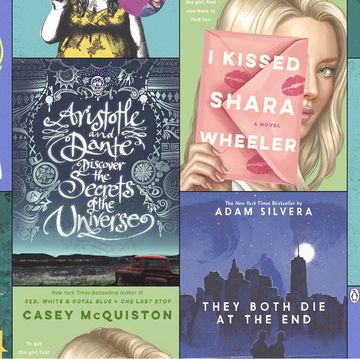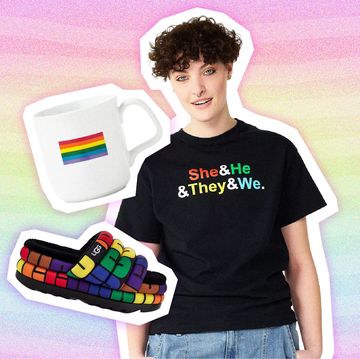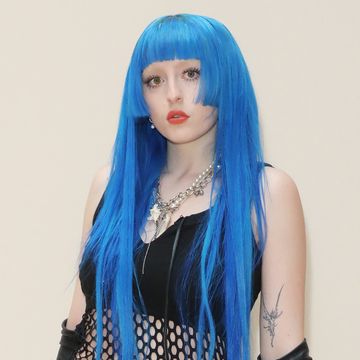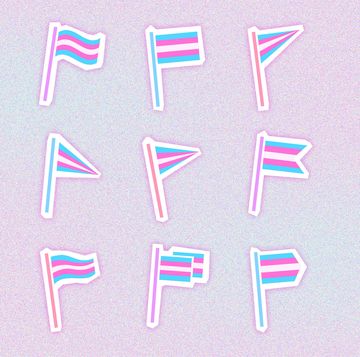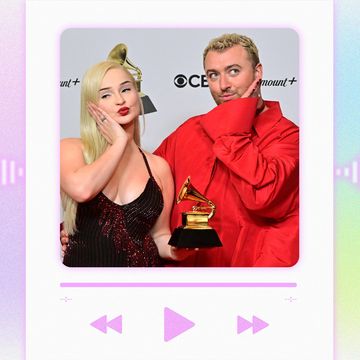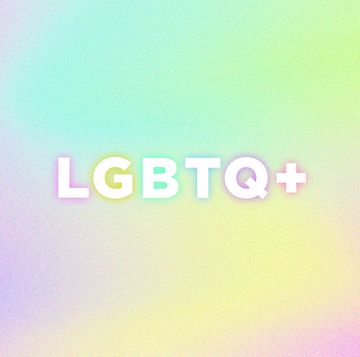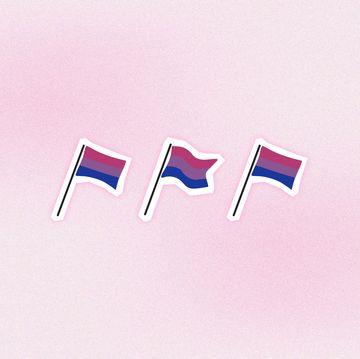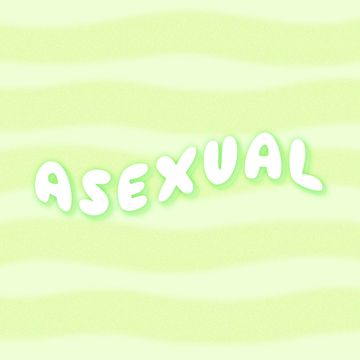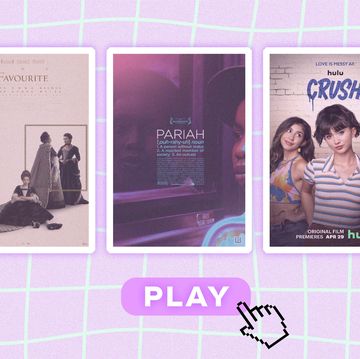"Am I gay?" It sounds like such a simple question, but finding the answer can be so much trickier than you might think. Why? Because it's a question only you can answer. You can't ask a teacher or a parent or your best friend or Google or even Seventeen and get a "yes" or a "no." And while it would be so nice to shake a magic 8 ball and get some clarity here, it's actually crucial for you to come to the answer all on your own.
Here are some things to keep in mind if you're thinking you might be gay:
You're not alone.
If you're thinking that you might be gay, then know that you have a whole built-in support group of wonderful and diverse people who are just waiting to meet you. What's truly beautiful about being in the LGBTQ community is that it is so expansive. It includes people of every race and religion. Your body can be any size and you can be gay. You can be disabled and be gay. Everyone is welcome to the table, and you're bound to meet some pretty incredible humans once you take a seat.
It's ok if you don't have answers.
There's a huge leap from "I feel a little different" to "I'm a masculine-of-center genderqueer gay woman." I remember kissing girls in high school, and then in college, but having boyfriends along the way. I kept waiting to be hit by some bolt of lightening that would show me that I was undeniably, 100%, totally, purely gay. But, tbh, the process was a lot quieter than that. I kissed girls and I liked it, but I still liked guys. And then I actually dated a girl, and I realized that it felt the same as dating a guy but better. And then I thought, 'Huh. I must be gay.' Just like that.
And you know what? The world didn't end and I didn't feel like a totally different person — I just felt like I had taken a small step towards who I truly am inside. And that feels good. And ever since that day, there have been a million more steps as I've acquired more language to describe myself and my identity. As long as you're listening to yourself, you can't go wrong.
Your feelings might change, and they might not.
Coming out for the first time can feel so final, but it's actually not the end (it's just the beginning!). You're going to come out so much in the course of your life (in college, on dates, when you meet new people, etc.), and each time you do, you get to define where you are with your identity in that moment.
And, while we're on the topic, cut yourself a little slack in the coming out department, ok? Can you imagine if every feeling you had at the age of 12 became something that was set in stone? If that were true, you'd be a vet with a purple race car and a cabinet full of Sour Patch kids wondering how you got to this point in your life. Things change and evolve as you grow, and that's 100% ok. What your sexual orientation or gender identity feels like today might not be how it will feel in 1 year or 10 years. Don't punish yourself for doing the legwork to figure out who you are.
Your safety comes first.
Your safety means everything, and sometimes being out might make you feel like a target. If it's ever unsafe for you to be out, take that into consideration. You're not being untrue to yourself if you are in a situation where self-preservation is necessary. There will always be time to come out. If you feel unsafe, it's perfectly fine to wait it out.
Bring queer voices into your life.
Coming out can feel very lonely at first. If you find that you're not in a position to come out publicly and you feel isolated as a result of that, try to incorporate queer voices into your private life. For example, listen to podcasts like Nancy and find friendship in incredible hosts who provide insight into issues and ideas that are important to you. Read a book that highlights a dimensional queer narrative (you can find a list of them here) and binge-watch TV shows that feature compelling LGBTQ characters. Queer culture is a thing of beauty. Dig into it!
Know where you can go to get support.
You might be wondering if you're gay, but you don't have anyone in your life to turn to with questions and concerns. Fret not, friend. There are so many incredible resources where you can find support. For one, check out GLAAD, the world’s largest LGBTQ media advocacy organization, to find out how you can get involved in your community. Also, take a look at their glossary of terms. As we all know, it's so hard to describe what you're feeling when you don't have the language to capture it. Read up on the difference between things like gender identity and sexual orientation so you can get a better grasp of what's going on in your head and heart.
Here are a few other organizations where you can find supportive communities and so much more:
- The Trevor Project: A national organization providing crisis intervention and suicide prevention services to lesbian, gay, bisexual, transgender and questioning (LGBTQ) young people ages 13-24.
- It Gets Better Project: A nonprofit organization with a mission to uplift, empower, and connect lesbian, gay, bisexual, transgender, and queer youth around the globe.
- Trans Lifeline: A non-profit dedicated to the well being of transgender people.
Want to learn more about coming out? Watch this video below and follow Seventeen's LGBTQ-focused social channel Here on Facebook and Instagram.
As the digital deputy editor of Seventeen, I help our site director oversee content on the site and across all of our social media platforms. In 2013, I published a DIY book for beginners called InstaCraft (Ulysses Press). In 2015, I served as a jewelry designer for The Jewelry Recipe Book (Artisan). Before coming to Seventeen, I held positions at The New Yorker, Allure, Every Day with Rachael Ray, Reader's Digest and BuzzFeed.


